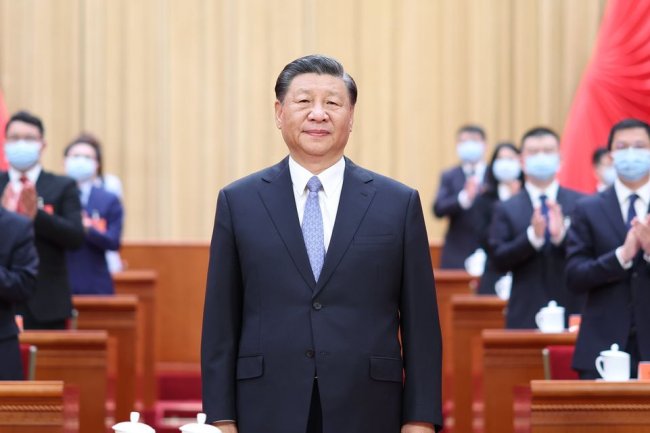Solar Startup GlassPoint Lands $8 Million After a Reboot
After reaching a peak valuation north of $400 million in its first incarnation, the solar-generated steam producer is back as a smaller company with a new strategy The Miraah solar thermal plant in Oman, built with GlassPoint technology. Photo: GlassPoint By Yuliya Chernova July 31, 2023 6:00 am ET | WSJ Pro A solar startup that has gotten a second lease on life is back with a new strategy aimed at helping it better cope with future downturns. GlassPoint, which sells solar-generated steam for industrial uses, is one of several businesses chasing climate-tech ideas that struggled in the past, but now expect better results amid greater focus on carbon-emissions reductions. “The biggest thing that’s different is the macro environment. Decarbonization


The Miraah solar thermal plant in Oman, built with GlassPoint technology.
Photo: GlassPoint
A solar startup that has gotten a second lease on life is back with a new strategy aimed at helping it better cope with future downturns.
GlassPoint, which sells solar-generated steam for industrial uses, is one of several businesses chasing climate-tech ideas that struggled in the past, but now expect better results amid greater focus on carbon-emissions reductions.
“The biggest thing that’s different is the macro environment. Decarbonization is on everybody’s agenda,” said GlassPoint Chief Executive Rod MacGregor, who is also a company co-founder and was CEO in the company’s first iteration.
Founded in 2009, GlassPoint was liquidated in 2020. MacGregor, along with other investors, bought out its assets and relaunched the business the following year.
The new version of GlassPoint has raised $8 million in a Series A round led by new investor 300PPM. Former Australian Prime Minister Malcolm Turnbull participated in the financing, along with Tomas Sigurdsson, former chief operating officer of Alcoa.
GlassPoint’s current valuation is a fraction of the company’s peak of more than $400 million back in 2017, according to MacGregor. The company itself is also much smaller, with about a dozen employees, down from hundreds previously.
Fresh funding, fresh challenges
The new funding shows New York-based GlassPoint’s progress. Yet new difficulties stand in the way of its capital-intensive business. Like other renewable-energy project developers, the company must fund its ambitious and large future projects at a time when the cost of capital is rising.
GlassPoint develops solar thermal technology that relies on mirrors focusing sunlight onto pipes filled with water, heating that water to make steam. Its technology is at the heart of the Miraah in Oman, one of the largest solar thermal plants in the world and in operation since 2018, producing steam that helps recover heavy crude oil.

Rod MacGregor, chief executive of GlassPoint.
Photo: Alessandro Della Savia
MacGregor first ran GlassPoint through 2017, when he was asked by the board to step down, he said. In 2020, GlassPoint’s then-investors, among them Royal Dutch Shell and the Oman Investment Authority, decided to stop funding the business and fold it, citing low oil prices and the global economic crisis sparked by the pandemic. A year later, though, MacGregor cooperated with BlackRock
to buy the assets of the company, including its name and roughly a hundred patents.Revamped strategy
The rebooted GlassPoint changed its business model in a key way. Instead of selling equipment to its customers, the company now plans to sell long-term contracts for the steam that it generates. That will create recurring revenue, enabling the company to better cope with the ups and downs in the commodity business, MacGregor said.
The company has also expanded from a focus on oil and gas recovery to selling steam for a range of industrial uses. Demand would come from industrial conglomerates that are under pressure to decarbonize their processes and would want steam from solar heat, MacGregor said.
Last year, GlassPoint signed a memorandum of understanding with the Saudi Arabia state mining company, Ma’aden Group, to develop a 1.5 gigawatt project that would use solar-generated steam for one of the intermediate products in aluminum production.
That project would alone exceed the total global installed capacity of solar heat projects for industrial processes, which are a niche market right now. Last year, just about 30 megawatts of solar heat for industrial processes projects were installed worldwide, according to the Solar Heat Worldwide report made in collaboration with the International Energy Agency.

A rendering of a 1.5 gigawatt project for the Saudi Ma’aden Group. GlassPoint has signed a memorandum of understanding to develop it.
Photo: GlassPoint
The project would also cost well over a billion dollars, MacGregor said.
‘High cost of capital’
Financing for large renewable-power projects, which typically involves debt, has become more expensive in the current environment of rising interest rates, said Baysa Naran, a manager at Climate Policy Initiative, a climate-change focused analysis and advisory group.
“All sectors, including the solar sector, are getting affected by the high cost of capital,” said Naran. The U.S. and other governments have introduced new policies to support renewable energy, and government subsidies such as tax credits under the U.S. Inflation Reduction Act also help, she said, but both are undermined by the rising cost of money and the rise in costs in general.
MacGregor acknowledged that costs are “moving in the wrong direction,” but said the Saudi project nonetheless remains attractive. The company hopes to sign a definitive agreement for the project this year, he said. GlassPoint expects to develop projects in the U.S., as well, he added.
GlassPoint’s supporters believe the company will be able to raise the needed project financing, partly because it has mature technology that has been deployed for several years, and also because greener end-products, such as aluminum, used in electric cars, smartphones and other products, may command a premium among buyers.
“There will be financing for these projects. It’s not just nice to have, it’s part of the goal of net zero,” said Howar Talabany, founding partner and head of business development at 300PPM, the firm that led GlassPoint’s Series A.
As extreme temperatures strain electric grids in the U.S., many parts of the country could face blackouts. Solar energy can help protect the grid during extreme heat, but it comes with the added cost of increasing climate waste and decreasing efficiency. Photo illustration: Xingpei Shen
Write to Yuliya Chernova at [email protected]
What's Your Reaction?

















